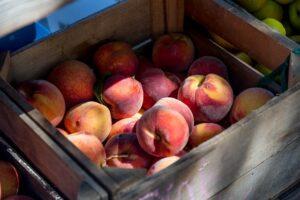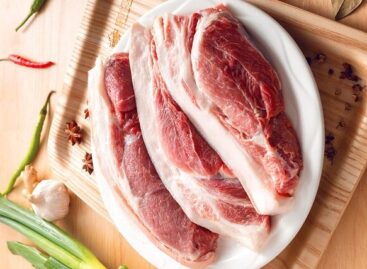Severe frost damage decimated this year’s peach crop
The spring frosts caused significant damage to the peach plantations in Hungary, so a much weaker than average harvest is expected this year, according to the joint overview of the National Chamber of Agrarian Economy (NAK) and the Hungarian Vegetable and Fruit Association (FruitVeb).

(Photo: Pixabay)
The results of recent years clearly show that climate change poses an increasing threat to plantations, so it is inevitable to plant new, more resistant plantations, optimize the use of varieties and spread modern cultivation methods. Unfortunately, domestic peach growers cannot hope for an abundant harvest this year either. Plantations suffered serious frost damage, spring frosts had a noticeable effect in all growing regions of the country. In areas with unfavorable growing conditions and for more sensitive varieties, the extent of damage reaches up to 100 percent, while in the case of more resistant varieties with good frost tolerance, there have been reports of 60-80 percent damage. According to the estimates of the National Chamber of Agrarian Economy and the Hungarian Vegetable-Fruit Trade Organization (FruitVeb), even in the evening of good frost-tolerant varieties, producers can expect only a weak, medium yield.
Harvesting began at the end of June and will continue until mid-September
Due to the significant frost damage, a very poor harvest is expected overall this year. In our country, this year, farmers can harvest from approximately 2,466 hectares. The most important growing area is in the Csongrád-Csanád county, where the area of plantations exceeds 1,070 hectares. There is also an area worth mentioning in the county of Bács-Kiskun (317 hectares), and most of the cultivation takes place in the counties of Pest (366 hectares) and Szabolcs-Szatmár-Bereg (136 hectares). Nectarine, a variant of peach, is also grown on about 113 hectares in the country.
Based on the above figures, it is clear that peach cultivation in our country has declined significantly in recent decades
While in the 1970s the area of commodity-producing peach plantations reached 13,000 hectares, today only a few thousand hectares of peaches are grown in the country. It is also a serious problem that the vast majority of plantations are characterized by old, outdated cultivation systems and the use of outdated or fragmented varieties. There have been serious fluctuations in the annual yield in recent years, depending on weather conditions, the domestic peach harvest ranged from 16,000 to 45,000 tons.
According to experts, peach cultivation can only be successful in Hungary if the gardeners work with the right varieties and the right cultivation technology
The global climate change that has been going on for many years is also a serious challenge for the horticulture sector, it would be necessary to plant more resistant fruit varieties. Typically, 60 percent of the domestic peach harvest is sold on the fresh market, and about 40 percent goes to processing plants. The use of varieties is very diverse, with regard to the color of the flesh, we distinguish between yellow and white peaches. The latter is juicier, has a more succulent taste and is softer, while the yellow-fleshed peach is typically sweeter. Early-ripening varieties are typically seed-bound, while most late-ripening varieties are seedless, meaning that the flesh of the peach easily separates from the seed. In recent years, the so-called flat peach, whose fruit is a flattened sphere, has white flesh, but is red around the seed, and has a seed, has become increasingly popular in our country. The nectarine is a variant of the peach, only its baldness distinguishes it from it. It owes its hairlessness to the absence of a dominant allele.
When shopping, if you want to eat peaches fresh, you should choose them based on their aroma
The sweeter the smell of the fruit, the more ripe the peach. Ripe peaches are not only tastier, but also richer in vitamins and nutrients. Don’t worry if you bought a slightly harder fruit, because peaches ripen after a few days, so after a few days they will be ready for consumption. However, in any case, immediately after purchase, store it in the refrigerator, where it can be kept for up to 1 week.
NAK/FruitWeb
Related news
The Ministry of Agriculture has issued a notice on the use of ENAR data in support policy
In the case of animal-based subsidies financed from EU funds,…
Read more >Dishes made from Hungarian pork should be on the holiday table!
Not only fish dishes are in the spotlight during the…
Read more >Farmer-centric agricultural policy after 2027 receives unanimous support
The EU member states’ agriculture ministers have adopted Council conclusions…
Read more >Related news
The Joy of Giving! – SPAR stores collect non-perishable food for people in need
The Hungarian Maltese Charity Service and SPAR Hungary have launched…
Read more >Technological advancements and business travel
The latest research from International Workplace Group (IWG), the leading…
Read more >K&H: a gift, but what and from which store?
When it comes to Christmas gift-giving, clothes are the most…
Read more >








